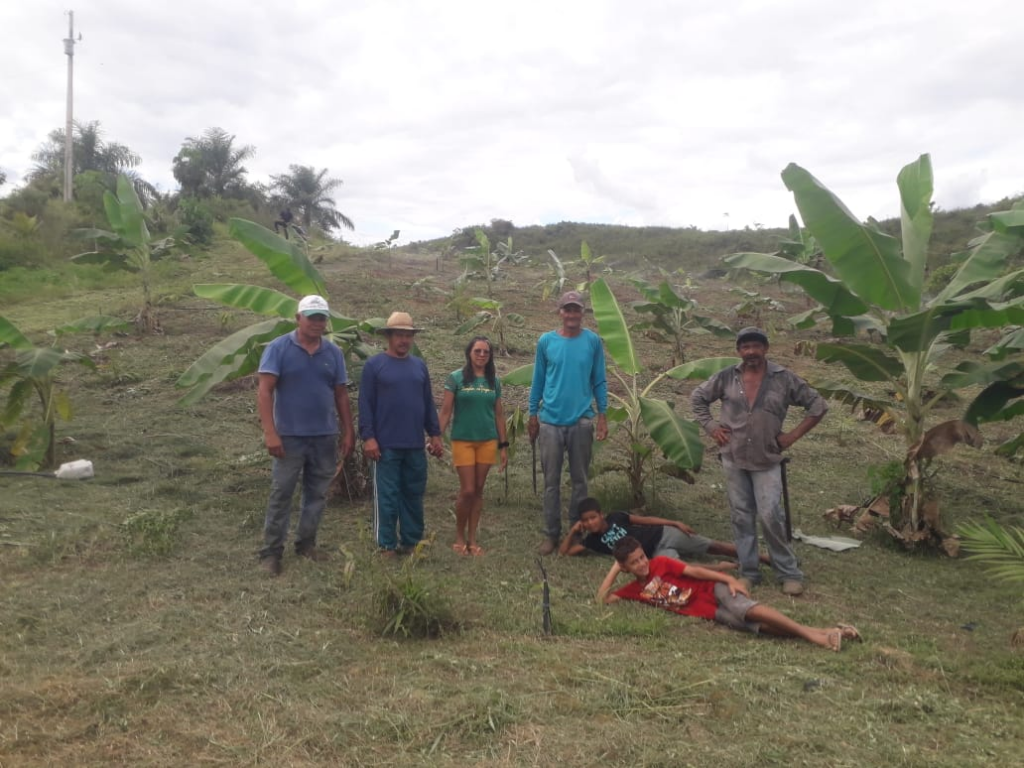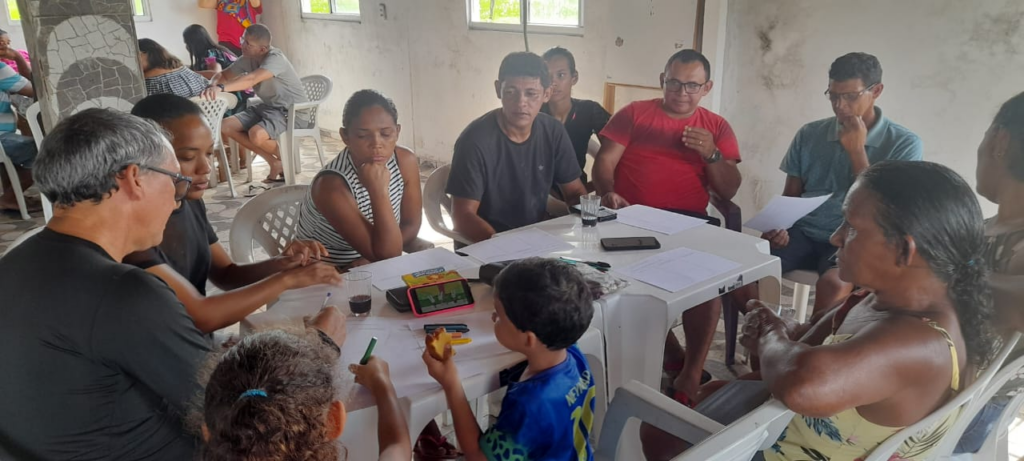In the structuring phase, we listen deeply to the participating communities and made sure their ideas are clear, so that anyone can understand the challenges that motivated those ideas, the strength of the planned activities and the desires behind the future impacts!
Author: Ana Paula Cipriano
Leia em português.
The Meli network seeks to promote the community’s autonomy in the decision-making process for the developing of projects. The program Polinating Regeneration gathers the community members so they can present ideas and solutions more relevant to their realities. In the first step of ideation, it was possible to visualize the importance of providing an active voice to the members of the communities for idea proposition. More than 100 ideas have already been raised in the program.
The 10 pre-selected communities during the ideation process are now working to transform the ideas in fundable projects. With the resources we have and continue to raise, we will finance the greatest possible number of projects that cary ideas and solutions aimed at environmental regeneration and the preservation of the local way of life.
In the current step, we oriented the communities as to project organization. The necessities of each community were very different. Some leardeships wrote the projects based on a model we provided, while others sent us answers to essential questions and we structured the final document, always following what was idealized by the community.

It has been a very rich experience to build projects with each community, respecting their time and individual demands, after all, we are working with diverse groups. Thus, even though all projects are in the elabolation stage, some groups structured thier proposals more quickly, while others needed more time to obtain all the essential information. This points to a difficulty in working with a fixed and inflexible calendar.
We were able to identify that some communities were not in the ideal moment to obtain all the information for the project’s formulation and, therefore, needed more time or technical support to structure the idea.
The projects address points such as the general challenges that led the community to propose the idea, the necessary activities, and the geographic and demographic data of the beneficiary group. In addition, understanding and elaborating the costs for the project to become a reality is also part of this moment in the program. We walk together with community members, fully supporting them in all stages involved in the process of transforming the idea into a structured project.

The criteria that we used to select projects are based on three main points:
(1) socio-environmental impact of the project and alignment of values,
(2) community availability or access to technical support to develop the project,
(3) alignment with what was requested during the proposed activities in the program.
The program does not only happen within communities, but also in the interaction between them. “The Pollinating project allowed me to get to know the reality of several traditional communities and their struggles to keep their rights guaranteed. We talk and discuss these problems, but above all we develop strategies to change these realities. Through the group, we were able to strengthen ourselves and imagine other possible futures. It is a space to talk about our perspectives for the future of our communities, the importance of working together, preserving the biomes, and the cultural appreciation of our country” – Olinda, Pataxó hã-hã-hãe indigenous community.
The experience of connecting communities with external partners such as universities and specialists in the subject of the projects is also a very important initiative within the program. Professors and researchers in several areas related to regenerative agriculture, stingless bees, and environmental preservation in general, have an integrative perspective, aiming to support the project for the best possible execution within the community. A successful partnership took place between the Frei Henri community and UFRA. During the visit to the community, members of the university carried out a survey of the characteristics of the production areas, identified the crops in the area and the potential for new crops, in addition to the allocation of geographical points and mapping of water sources for production.
In the initial phase, the benefit of an ideation moment for some of the communities was clear. But we also found communities looking for help to write a project whose idea was already very clear. Therefore, soon we will also open a new call for these ideas sent by the communities!
The Meli network is strengthened in this context of connections, enabling the expansion of the potential of each community and its members, so that they can prosper and multiply the knowledge acquired throughout the process.
Your donation can impact the world positively!
Subscribe to receive our Newsletter!
Find us also at Linkedin, Facebook, Twitter
or Instagram
www.meli-bees.org
❤️


One Reply to “Pollinating Regeneration: Structuring phase ”